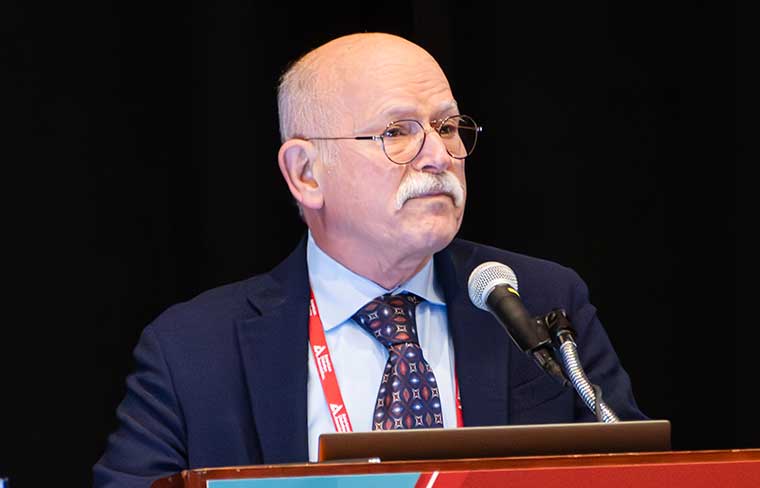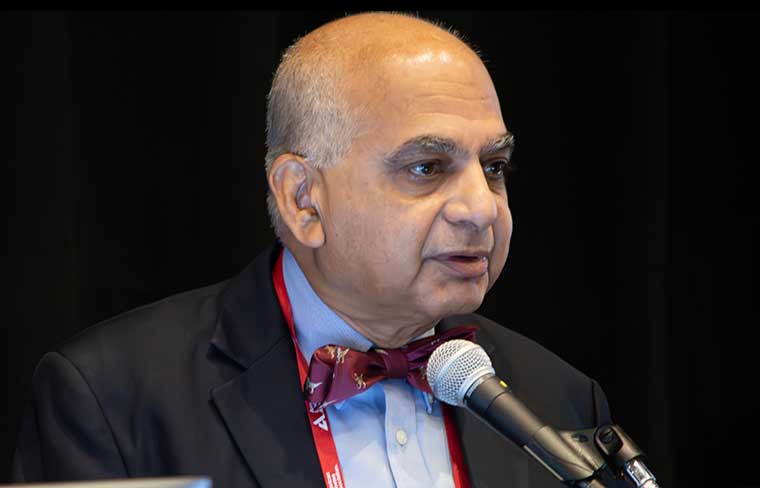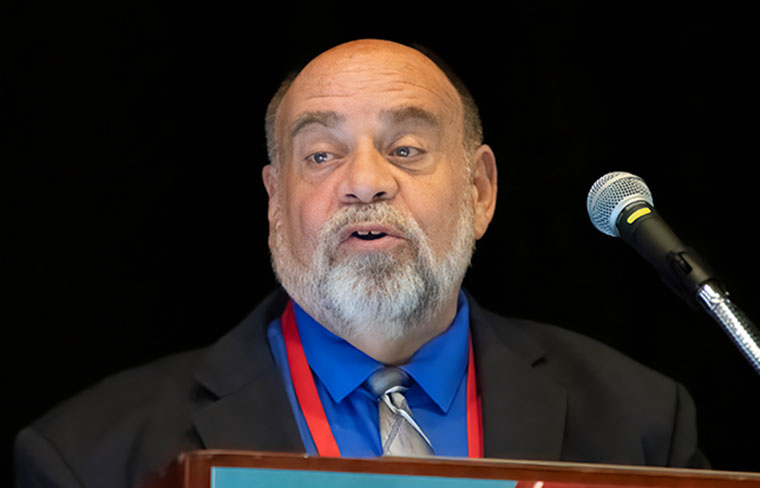-
Monoclonal antibody-peptide conjugate demonstrates efficacy as once-monthly treatment for obesity
Researchers, including Ania M. Jastreboff, MD, PhD, detailed the results of a phase 2 study of maridebart cafraglutide for inducing weight loss in adults living with obesity, with or without type 2 diabetes.
-
BELIEVE spotlights quality and quantity approach to weight management with combo therapy
Steven B. Heymsfield, MD, and other panelists discussed how bimagrumab can preserve the weight reduction seen with semaglutide while also improving body composition.
-
CATALYST shows mifepristone for hypercortisolism in type 2 diabetes reduces A1C, weight
Vivian Fonseca, MD, and other investigators explained the results of the largest prospective study to date of hypercortisolism in difficult-to-treat diabetes and pharmacotherapy of hypercortisolism.
-
Add-on therapy improves glycemic outcomes and weight loss in adults living with type 1 diabetes and obesity
Researchers, including Viral N. Shah, MD, shared findings from phase 2 of the ADJUST-T1D study for the first time at the Scientific Sessions in Chicago. Once-weekly semaglutide enhanced the efficacy of automated insulin delivery alone in meeting time-in-range and weight-reduction targets.
-
QWINT signals paradigm shift for basal insulin dosing in type 2 diabetes
Chantal Mathieu, MD, PhD, and other investigators reported on findings from three QWINT studies. Efsitora alfa is now the second long-acting, once-weekly insulin analog that has been evaluated in robust phase 3 studies and proven to be non-inferior to daily insulins.
-
SOUL trial shows oral semaglutide has positive CV benefits in type 2 diabetes
Rodica Pop-Busui, MD, PhD, and other researchers shared new data showing oral semaglutide improved each of the composite measures of SOUL, death from cardiovascular causes, nonfatal stroke, and nonfatal myocardial infarction.
-
STRIDE is a first step in addressing unmet needs in comorbid PAD and type 2 diabetes
CORRECTION: Subodh Verma, MD, PhD, FRCSC, and others explained how semaglutide can change the trajectory of disease in individuals with type 2 diabetes and peripheral artery disease.
-
REDEFINE trials advance combination treatment for weight management
Experts discussed findings from two phase 3 studies that evaluated the efficacy of combined treatment with an amylin analog and a glucagon-like peptide 1 (GLP-1) receptor agonist in inducing weight loss in individuals living with obesity or overweight.
-
PATHWEIGH demonstrates significant weight loss for primary care model
Speakers shared evidence of population-wide weight loss and improved use of weight-related treatment. Mark Gritz, PhD, said the goal was affordable care delivery that could be implemented broadly.
-
Symposium features promise of non-peptide GLP-1 RAs and first report of phase 3 ACHIEVE-1
Julio Rosenstock, MD, shared data from ACHIEVE-1 that show orforglipron led to reductions in A1C and meaningful weight loss as monotherapy in drug-naïve type 2 diabetes with inadequate glycemic management.











